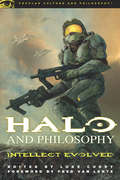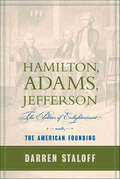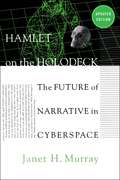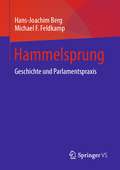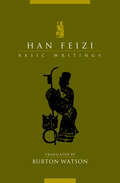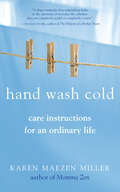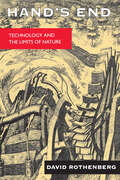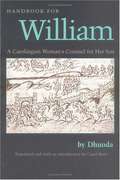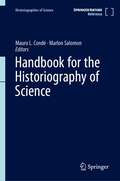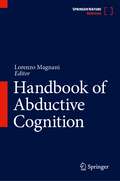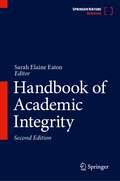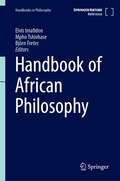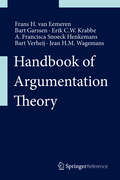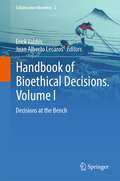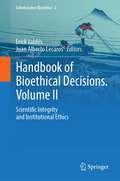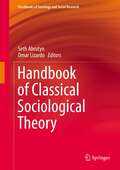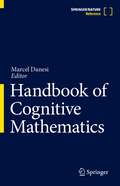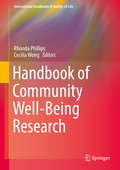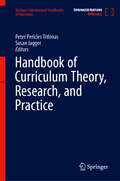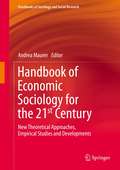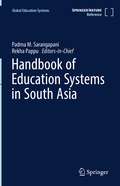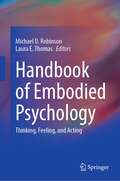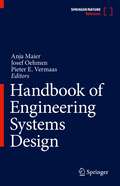- Table View
- List View
Halo and Philosophy
by Luke CuddySince the Doom series, First Person Shooter (FPS) videogames have ricocheted through the gaming community, often reaching outside that community to the wider public. While critics primarily lampoon FPSs for their aggressiveness and on-screen violence, gamers see something else. Halo is one of the greatest, most successful FPSs ever to grace the world of gaming. Although Halo is a FPS, it has a science-fiction storyline that draws from previous award-winning science fiction literature. It employs a game mechanic that limits the amount of weapons a player can carry to two, and a multiplayer element that has spawned websites like Red vs. Blue and games within the game created by players themselves.Halo's unique and extraordinary features raise serious questions. Are campers really doing anything wrong? Does Halo's music match the experience of the gamer? Would Plato have used Halo to train citizens to live an ethical life? What sort of Artificial Intelligence exists in Halo and how is it used? Can the player's experience of war tell us anything about actual war? Is there meaning to Master Chief's rough existence? How does it affect the player's ego if she identifies too strongly with an aggressive character like Master Chief? Is Halo really science fiction? Can Halo be used for enlightenment-oriented thinking in the Buddhist sense? Does Halo's weapon limitation actually contribute to the depth of the gameplay? When we willingly play Halo only to die again and again, are we engaging in some sort of self-injurious behavior? What is expansive gameplay and how can it be informed by the philosophy of Michel Foucault? In what way does Halo's post-apocalyptic paradigm force gamers to see themselves as agents of divine deliverance? What can Red vs. Blue teach us about personal identity?These questions are tackled by writers who are both Halo cognoscenti and active philosophers, with a foreword by renowned Halo fiction author Fred Van Lente and an afterword by leading games scholar and artist Roger Ngim.
Hamilton versus Jefferson in the Washington Administration
by Carson HollowayBy the middle of 1792, just a little more than three years after America's new government under the Constitution had been set in motion, Alexander Hamilton and Thomas Jefferson - President George Washington's two most important cabinet secretaries and two of the most eminent men among the American founders - had become open and bitter political enemies. Their dispute was not personal but political in the highest sense. Each believed that the debate between them was over regime principles. Each believed that he was protecting the newly established republic, and that the other was laboring to destroy it. Carson Holloway's Hamilton versus Jefferson in the Washington Administration examines Hamilton and Jefferson's differences, seeking to explain why these great founders came to disagree so profoundly and vehemently about the political project to which both were committed and had dedicated so much thought and effort.
Hamilton, Adams, Jefferson: The Politics of Enlightenment and the American Founding
by Darren StaloffAn intellectual history of three Founding Fathers whose unique approaches to the Enlightenment helped shape America.American historian Darren Staloff delves into the political and intellectual lives of Alexander Hamilton, John Adams, and Thomas Jefferson to reveal how they embodied the collision of Europe’s grand Enlightenment project with the birth of a young nation. These three very different men each governed their public lives by Enlightenment principles. And the struggle for American independence would forever change their relationships to the politics of Enlightenment.Repeated humiliation on America’s battlefields banished Hamilton’s youthful idealism, leaving him a disciple of Enlightened realpolitik and the nation’s leading exponent of modern statecraft. After ten years in Europe’s diplomatic trenches, Adams’s embrace of the politics of Enlightenment became increasingly skeptical in spirit, and his public posture became increasingly that of the gadfly of his country. And Jefferson’s frustrations as a Revolutionary governor in Virginia led him to go beyond his Enlightened worldview, and articulate a new and radical Romantic politics of principle.Staloff demonstrates how each of these approaches helped shape America’s unique political identity. Because of the influence of these towering figures, Americans demand a government that is both modern, constrained by checks and balances, and capable of appealing to our loftiest aspirations while adhering to decidedly pragmatic policies.
Hamlet on the Holodeck
by Janet H. MurrayStories define how we think, the way we play, and the way we understand our lives. And just as Gutenberg made possible the stories that ushered in the Modem Era, so is the computer having a profound effect on the stories of the late 20th century. Today we are confronting the limits of books themselves -- anticipating the end of storytelling as we know it -- even as we witness the advent of a brave new world of cyberdramas. Computer technology of the late twentieth century is astonishing, thrilling, and strange, and no one is better qualified than Janet Murray to offer a breathtaking tour of how it is reshaping the stories we live by.Can we imagine a world in which Homer's Iyre and Gutenberg's press have given way to virtual reality environments like the Star Trek® holodeck? Murray sees the harbingers of such a world in the fiction of Borges and Calvino, movies like Groundhog Day, and the videogames and Web sites of the 1990s. Where is our map for this new frontier, and what can we hope to find in it? What will it be like to step into our own stories for the first time, to change our vantage point at will, to construct our own worlds or change the outcome of a compelling adventure, be it a murder mystery or a torrid romance? Taking up where Marshall McLuhan left off, Murray offers profound and provocative answers to these and other questions.She discusses the unique properties and pleasures of digital environments and connects them with the traditional satisfactions of narrative. She analyzes the state of "immersion," of participating in a text to such an extent that you literally get lost in a story and obliterate the outside world from your awareness. She dissects the titillating effect of cyber-narratives in which stories never climax and never end, because everything is morphable, and there are always infinite possibilities for the next scene. And she introduces us to enchanted landscapes populated by witty automated characters and inventive role-playing interactors, who together make up a new kind of commedia dell'arte. Equal parts daydream and how-to, Hamlet on the Holodeck is a brilliant blend of imagination and techno-wizardry that will provoke readers and guide writers for years to come.
Hammelsprung: Geschichte und Parlamentspraxis
by Hans-Joachim Berg Michael F. FeldkampIn diesem Buch wird die historische Entwicklung und Begriffsgeschichte des Hammelsprungs als eines der bemerkenswertesten sichtbaren Instrumente der Parlamentsarbeit seit dem 19. Jahrhundert dargestellt. Ferner wird gezeigt, dass die tatsächliche Handhabung des Hammelsprungs der ursprünglichen parlamentsrechtlichen Intention und modernen Funktionalität nicht mehr gerecht wird. Anträge in den Landesparlamenten von Bayern und Berlin schlagen eine Umkehr des bisherigen Auszählverfahrens vor. Danach soll die Zählung nicht erst bei Wiedereintritt in den Plenarsaal, sondern bereits beim Verlassen erfolgen.
Han Feizi: Basic Writings
by Burton WatsonTrenchant, sophisticated, and cynical, Han Feizi has been read in every age and is still of interest today when people are more than ever concerned with the nature and use of power. Han Feizi (280?-233 B.C.), a prince of Han, was a representative of the Fa-chia, or Legalist, school of philosophy and produced the final and most readable exposition of its theories. His handbook for the ruler deals with the problems of strengthening and preserving the state, the way of the ruler, the use of power, and punishment and favor. Ironically, the ruler most influenced by Han Feizi, the king of Qin, eventually sent Han Feizi to prison, where he later committed suicide.
Han Feizi: Basic Writings (Translations from the Asian Classics)
by Burton WatsonTrenchant, sophisticated, and cynical, Han Feizi has been read in every age and is still of interest today when people are more than ever concerned with the nature and use of power. Han Feizi (280?-233 B.C.), a prince of Han, was a representative of the Fa-chia, or Legalist, school of philosophy and produced the final and most readable exposition of its theories. His handbook for the ruler deals with the problems of strengthening and preserving the state, the way of the ruler, the use of power, and punishment and favor. Ironically, the ruler most influenced by Han Feizi, the king of Qin, eventually sent Han Feizi to prison, where he later committed suicide.
Hand Wash Cold: Care Instructions for an Ordinary Life
by Karen Maezen MiillerIt’s easy to think that meaning, fulfillment, and bliss are “out there,” somewhere outside of our daily routine. But in this playful yet profound reflection on awareness, the compelling voice of a contemporary woman reveals the happiness at the bottom of the laundry basket, the love in the kitchen sink, and the peace possible in one’s own backyard. Follow Karen Maezen Miller through youthful ambition and self-absorption, beyond a broken marriage, and into the steady calm of a so-called ordinary life. In her hands, household chores and caregiving tasks become opportunities for self-examination, lessons in relationship, and liberating moments of selflessness. With attention, it’s the little things — even the unexpected, unpleasant, and unwanted things — that count.
Hand's End: Technology and the Limits of Nature
by David RothenbergHand's End offers a new philosophy of technology as the fundamental way in which humans experience and define nature—the tool as humanity extended. Rothenberg examines human inventions from the water wheel to the nuclear bomb and discusses theories of technology in the thought of philosophers including Plato, Aristotle, Bacon, Marx, Heidegger, Spinoza, Mumford, and McLuhan.
Handbook For William: A Carolingian Women's Counsel For Her Son (Medieval Texts In Translation Series)
by Dhuoda Carol NeelSo wrote the Frankish noblewoman Dhuoda to her young son William in the middle of the ninth century. Intended as a guide to right conduct, the book was to be shared in time with William's younger brother. Dhuoda's situation was poignant. Her husband, Bernard, the count of Septimania, was away and she was separated from her children. William was by Charles the Bald as a guarantee of his father's loyalty, and the younger son's whereabouts were unknown. As war raged in the crumbling Carolingian Empire, the grieving mother, fearing for the spiritual and physical welfare of her absent sons, began in 841 to write her loving counsel in a handbook. Two years later she sent it to William. Handbook for William memorably expresses Dhuoda's maternal feelings, religious fervor, and learning. In teaching her children how they might flourish in God's eyes, as well as humanity's, Dhuoda reveals the authority of Carolingian women in aristocratic households. She dwells on family relations, social order, the connection between religious and military responsibility, and, always, the central place of Christian devotion in a noble life. One of the few surviving texts written by a woman in the Middle Ages, Dhuoda's Liber manualis was available in only two faulty Latin manuscripts until a third, superior one was discovered in the 1950s. This English translation is based on the 1975 critical edition and French translation by Pierre Riché. Now available for the first time in paperback, it includes an afterword written by Carol Neel that takes into account recent scholarship and the 1991 revised edition of Riché's text.
Handbook for the Historiography of Science (Historiographies of Science)
by Mauro L. Condé Marlon SalomonThis book aims to perform a critical and broad assessment of the historiography of science produced from the late nineteenth century to the early twenty-first century. It presents its main authors, concepts, ideas, conceptions, and schools. It also analyzes the historical circumstances of the rise of the discipline history of science and the relations of the historiography of science with related areas. These chapters do not understand the historiography of science as a mere description or record of the history of science. Instead, they understand the historiography of science from the epistemological criteria and choices that guided the writing of the history of science in its different contexts. In other words, more than describing the record of the various possibilities of historiographical approaches to science, the chapters carry out an epistemological reflection to assess the bases, possibilities, scope, and limits of different historiographical conceptions, authors, and traditions that have established the writing of the history of science. This book can be conceived as a reference work not only for professional historians and philosophers but also for academics from different backgrounds who are initiating themselves in the universe of history and philosophy of science, be they scientists from different fields or young researchers from different backgrounds who want to start studying the history and philosophy of science.
Handbook of Abductive Cognition
by Lorenzo MagnaniThis Handbook offers the first comprehensive reference guide to the interdisciplinary field of abductive cognition, providing readers with extensive information on the process of reasoning to hypotheses in humans, animals, and in computational machines. It highlights the role of abduction in both theory practice: in generating and testing hypotheses and explanatory functions for various purposes and as an educational device. It merges logical, cognitive, epistemological and philosophical perspectives with more practical needs relating to the application of abduction across various disciplines and practices, such as in diagnosis, creative reasoning, scientific discovery, diagrammatic and ignorance-based cognition, and adversarial strategies. It also discusses the inferential role of models in hypothetical reasoning, abduction and creativity, including the process of development, implementation and manipulation for different scientific and technological purposes. Written by a group of internationally renowned experts in philosophy, logic, general epistemology, mathematics, cognitive, and computer science, as well as life sciences, engineering, architecture, and economics, the Handbook of Abductive Cognition offers a unique reference guide for readers approaching the process of reasoning to hypotheses from different perspectives and for various theoretical and practical purposes. Numerous diagrams, schemes and other visual representations are included to promote a better understanding of the relevant concepts and to make concepts highly accessible to an audience of scholars and students with different scientific backgrounds.
Handbook of Academic Integrity
by Sarah Elaine EatonThe book brings together diverse views from around the world and provides a comprehensive overview of academic integrity and how to create the ethical academy. At the same time, the Handbook does not shy away from some of the vigorous debates in the field such as the causes of academic integrity breaches. There has been an explosion of interest in academic integrity in the last 20-30 years. New technologies that have made it easier than ever for students to ‘cut and paste’, coupled with global media scandals of high profile researchers behaving badly, have resulted in the perception that plagiarism is ‘on the rise’. This, in combination with the massification and commercialisation of higher education, has resulted in a burgeoning interest in the importance of academic integrity, how to safeguard it and how to address breaches appropriately. What may have seemed like a relatively easy topic to address – students copying sources without attribution – has in fact, turned out to be a complex, interdisciplinary field of research requiring contributions from linguists, psychologists, social scientists, anthropologists, teaching and learning specialists, mathematicians, accountants, medical doctors, lawyers and philosophers, to name just a few.Because of this broad interest and input, this handbook serves as the single authoritative reference work which brings together the vast, growing, interdisciplinary and at times contradictory body of literature. For both established researchers/practitioners and those new to the field, this Handbook provides a one-stop-shop as well as a launching pad for new explorations and discussions.
Handbook of African Philosophy (Handbooks in Philosophy)
by Elvis Imafidon Mpho Tshivhase Björn FreterThis Handbook provides in one volume rich, comprehensive and rigorous coverage of specific subject areas and thematic concerns in the ever-evolving academic discipline of African philosophy. This Handbook is unique in its focus on central and emerging areas within African philosophy such as Afro-communitarian philosophy, ethics, epistemology, social and political philosophy, existentialism, philosophy of religion, gender philosophy, philosophy of education, phenomenology, transhumanism, African philosophy futures, and philosophy of the non-human. The thirty-two chapters in this Handbook explore the rich textual and non-textual forms of philosophical knowledge in Africa and adequately represent the broad and diverse scope of African philosophy, showing the richness and depth of the philosophical tradition. This reference work is indispensable to students and researchers in African philosophy, comparative philosophy and world philosophies.
Handbook of Argumentation Theory
by Frans H. van Eemeren Bart Garssen Erik C. W. Krabbe A. Francisca Snoeck Henkemans Bart Verheij Jean H. M. WagemansThe Handbook Argumentation Theory provides an up to date survey of the various theoretical contributions to the development of argumentation theory for all scholars interested in argumentation, informal logic and rhetoric. It describes the historical roots of modern argumentation theory that are still an important theoretical background to contemporary approaches. Because of the complexity, diversity and rate of developments in argumentation theory, there is a real need for an overview of the state of the art, the main approaches that can be distinguished and the distinctive features of these approaches. The Handbook covers classical and modern backgrounds to the study of argumentation, the New Rhetoric developed by Perelman and Olbrechts-Tyteca, the Toulmin model, formal approaches, informal logic, communication and rhetoric, pragmatic approaches, linguistic approaches and pragma-dialectics. The Handbook is co-authored by Frans H. van Eemeren, Bart Garssen, Erik C. W. Krabbe, A. Francisca Snoeck Henkemans, Bart Verheij and Jean Wagemans, who are a coherent and prominent writing team whose expertise covers the whole field. The authors are assisted by an international Editorial Board consisting of outstanding argumentation scholars whose fields of interest are represented in the volume. "
Handbook of Bioethical Decisions. Volume I: Decisions at the Bench (Collaborative Bioethics #2)
by Erick Valdés Juan Alberto LecarosThe Handbook of Bioethical Decisions is aimed at addressing and analyzing the most important ethical concerns and moral quandaries arisen in biomedical and scientific research. As such, it identifies and problematizes on a comprehensive range of ethical issues researchers must deal with in different critical contexts. Thus, the Handbook, Vol. I, may be helpful for them to make decisions and deliberate in complex practical scenarios. In this fashion, the volume reunites different points of view to give readers room enough to get a better knowledge and take their own position on pressing bioethical issues of the day. Consequently, this work seeks to engender dense ethical epistemology scientists can count on when conducting latest generation biomedical research. By bringing together an impressive array of contributions on the most important elements and categories for “at the bench” bioethical decisions as well as offering chapters by some of the most world renowned and prominent experts in bioethics, the Handbook, Vol. I, is a paradigmatic text in its area and a valuable resource for courses on bioethics, and biomedical research, as well as courses that discuss ethics and the biosciences at different professional levels, biomedical industry, pharmacological companies and the public sphere in general.
Handbook of Bioethical Decisions. Volume II: Scientific Integrity and Institutional Ethics (Collaborative Bioethics #3)
by Erick Valdés Juan Alberto LecarosThe Handbook of Bioethical Decisions Volume II addresses and analyzes the most important ethical concerns and moral quandaries related to scientific integrity and institutional ethics. It counts on two parts, Part One: Research Ethics, which addresses issues related to Scientific Integrity, Research Misconduct and Conducting Ethical Research, and Part Two: Institutional Ethics and Bioethics Committees, which explores Institutional Ethics issues, Ethics and Bioethics Committees’ roles and scopes, and Bioethical Issues in Institutional Ethics. Consequently, the Handbook, Vol. II, offers a remarkable collection of works by outstanding international experts on institutional and research ethics, in order for bioethics practitioners to obtain better elements to address key issues related to integrity in research as well as to decision-making processes. In this fashion, this volume is a valuable resource for professionals working on different bioethical and biomedical fields, such as, ethics and bioethics committees, health care institutions, biomedical and pharmacological companies, and academic settings, among others.Chapter 26 is available open access under a Creative Commons Attribution 4.0 International License via link.springer.com.
Handbook of Classical Sociological Theory (Handbooks of Sociology and Social Research)
by Seth Abrutyn Omar LizardoThis is the first handbook focussing on classical social theory. It offers extensive discussions of debates, arguments, and discussions in classical theory and how they have informed contemporary sociological theory. The book pushes against the conventional classical theory pedagogy, which often focused on single theorists and their contributions, and looks at isolating themes capturing the essence of the interest of classical theorists that seem to have relevance to modern research questions and theoretical traditions. This book presents new approaches to thinking about theory in relationship to sociological methods.
Handbook of Cognitive Mathematics
by Marcel DanesiCognitive mathematics provides insights into how mathematics works inside the brain and how it is interconnected with other faculties through so-called blending and other associative processes. This handbook is the first large collection of various aspects of cognitive mathematics to be amassed into a single title, covering decades of connection between mathematics and other figurative processes as they manifest themselves in language, art, and even algorithms. It will be of use to anyone working in math cognition and education, with each section of the handbook edited by an international leader in that field.
Handbook of Community Well-Being Research
by Rhonda Phillips Cecilia WongThis Handbook brings together foundational and leading-edge research exploring dimensions of improving quality of life in communities of place. Social indicators and other assessment techniques will be explored, including from the framework of community perspectives which is concerned with enhancing quality of life for community members. As part of this trans-disciplinary work, participation, engagement, and empowerment will be key concepts presented. Along with capacity building and service provision, these elements influence community well-being and will be considered along with subjective and objective assessment approaches. Researchers from around the globe share their work on this important topic of community well-being, bringing together a diverse array of disciplinary perspectives. Those working in the areas of public policy, community development, community and social psychology, urban and regional planning, and sustainable development will find this volume particularly useful for the array of approaches presented.
Handbook of Curriculum Theory, Research, and Practice (Springer International Handbooks of Education)
by Peter Pericles Trifonas Susan JaggerThis Handbook paints a portrait of what the international field of curriculum entails in theory, research and practice. It represents the field accurately and comprehensively by preserving the individual voices of curriculum theorist, researchers and practitioners in relation to the ideas, rules, and principles that have evolved out of the history of curriculum as theory, research and practice dealing with specific and general issues. Due to its approach to both specific and general curriculum issues, the chapters in this volume vary with respect to scope. Some engage the purposes and politics of schooling in general. Others focus on particular topics such as evaluation, the use of instructional objectives, or curriculum integration. They illustrate recurrent themes and historical antecedents and the curricular debates arising from and grounded in epistemological traditions. Furthermore, the issues raised in the handbook cut across a variety of subject areas and levels of educationand how curricular research and practice have developed over time. This includes the epistemological foundations of dominant ideas in the field around theory, research and practice that have led to marginalization based on race, class, gender, sexuality, ethnicity, age, religion, and ability. The book argues that basic curriculum issues extend well beyond schooling to include the concerns of anyone interested in how people come to acquire the knowledge, skills, and values that they do in relation to subjectivity and experience.
Handbook of Economic Sociology for the 21st Century: New Theoretical Approaches, Empirical Studies and Developments (Handbooks of Sociology and Social Research)
by Andrea MaurerThis handbook provides an overview on major developments that occurred in the field of economic sociology after its rebirth since the 1980s in the US. It offers new insights on the uniqueness of European economic sociology compared to US economic sociology which emerged at the end of the 20th century. The handbook presents economic sociology as a developing field which started with certain foundations as new economic sociology, widening the perspective by introducing social factors thereby focusing more on general belief systems, social forms of coordination and the relationships between society and the economy. It offers an outstanding portrait of the research field helping to identify major foundations and trajectories as well as new research perspectives for a globalized economic sociology. This makes the handbook appeal to specialized researchers of the field, researchers from other disciplines interested in economic phenomena, as well as graduate and postgraduate students.
Handbook of Education Systems in South Asia (Global Education Systems)
by Padma M. Sarangapani Rekha PappuThis handbook is an important reference work in understanding education systems in the South Asia region, their development trajectory, challenges and potential. The handbook includes the SAARC (South Asian Association for Regional Cooperation) countries for discussion---Afghanistan, Pakistan, India, Nepal, Bhutan, Bangladesh, and Sri Lanka---while also considering countries such as Myanmar and the Maldives that have considerable shared history in the region. Such a comparative perspective is largely absent within the literature given the present paucity of intra-regional interaction. South Asian education systems are viewed primarily through a development lens in terms of inequalities, challenges and responses. However, the development of modern institutions of education and the challenges that it faces requires cultural and historical understanding of indigenous traditions as well as indigenous modern thinkers and education movements. Therefore, this encompassing reference work covers indigenous education traditions, formal education systems, including school and preschool education, higher and professional education, education financing systems and structures, teacher education systems, addressing huge linguistic and other diversities, and marginalization within the formal education system, and pedagogy and curricula. All the countries in this region have their own unique geographical, cultural, economic and political character and histories of interest and significance, and have responded to common issues such as overcoming the colonial legacy, language diversity, or girls’ education, or minority rights in education, in uniquely different ways. The sections therefore include country-specific perspectives as far as possible to highlight these issues. Internationally renowned specialists of South Asian education systems have contributed to this important reference work, making it an invaluable resource for researchers and students of education interested in South Asia.
Handbook of Embodied Psychology: Thinking, Feeling, and Acting
by Michael D. Robinson Laura E. ThomasThis edited volume seeks to integrate research and scholarship on the topic of embodiment, with the idea being that thinking and feeling are often grounded in more concrete representations related to perception and action. The book centers on psychological approaches to embodiment and includes chapters speaking to development as well as clinical issues, though a larger number focus on topics related to cognition and neuroscience as well as social and personality psychology. These topical chapters are linked to theory-based chapters centered on interoception, grounded cognition, conceptual metaphor, and the extended mind thesis. Further, a concluding section speaks to critical issues such as replication concerns, alternative interpretations, and future directions. The final result is a carefully conceived product that is a comprehensive and well-integrated volume on the psychology of embodiment. The primary audience for this book is academic psychologists from many different areas of psychology (e.g., social, developmental, cognitive, clinical). The secondary audience consists of disciplines in which ideas related to embodied cognition figure prominently, such as counseling, education, biology, and philosophy.
Handbook of Engineering Systems Design
by Pieter E. Vermaas Anja Maier Josef OehmenThis handbook charts the new engineering paradigm of engineering systems. It brings together contributions from leading thinkers in the field and discusses the design, management and enabling policy of engineering systems. It contains explorations of core themes including technical and (socio-) organisational complexity, human behaviour and uncertainty. The text includes chapters on the education of future engineers, the way in which interventions can be designed, and presents a look to the future. This book follows the emergence of engineering systems, a new engineering paradigm that will help solve truly global challenges. This global approach is characterised by complex sociotechnical systems that are now co-dependent and highly integrated both functionally and technically as well as by a realisation that we all share the same: climate, natural resources, a highly integrated economical system and a responsibility for global sustainability goals. The new paradigm and approach requires the (re)designing of engineering systems that take into account the shifting dynamics of human behaviour, the influence of global stakeholders, and the need for system integration. The text is a reference point for scholars, engineers and policy leaders who are interested in broadening their current perspective on engineering systems design and in devising interventions to help shape societal futures.
